Naked Kiss, The (1964)
“My darling, our marriage will be a paradise — because we’re both abnormal.”
|
Synopsis: |
|
Genres, Themes, Actors, and Directors:
Response to Peary’s Review: In his more extensive review of the film in his Cult Movies 3 book, Peary elaborates upon its role in Fuller’s broader oeuvre, noting that “The Naked Kiss and Shock Corridor are usually linked by critics and twin-billed by repertory theater owners”, perhaps because they “have (if you stretch it) vaguely similar premises, star Constance Towers…, were [similarly] financed…, were photographed by Stanley Cortez, deal with lurid subject matter and perverse sex, and tread the fine line between trash and art”. In addition, he points out that they both possess “fantasy-dream sequences”, incorporate “out-of-place personally photographed 16-mm travelogue-like footage”, include “absurd scenes only Fuller fanatics can accept”, and “have smashingly directed, unflinching shock scenes”. Indeed, as Peary notes, “there are few more startling sequences in Fuller’s work” (or any other films of the period, for that matter) “than the opening in The Naked Kiss;” while Towers’ head only remains bald during this initial scene (and it’s clear, if you’re looking, that she’s wearing a headpiece), the image evoked is masterfully indelible. What’s perhaps most fascinating about The Naked Kiss is how brutally Fuller disrupts the trajectory of his storyline, which eventually shifts into what looks like a standard “corny” Hollywood romance about a woman with a secret past hoping to reform and be accepted. (In Cult Movies 3, Peary quotes Fuller himself as saying, “I hate those kinds of stories.” !!) Instead, Fuller completely upends our expectations by showing that while Towers herself may be an “outcast”, she’s surrounded by corrupt men who “have no respect for women”, and think of them exclusively in “sexual terms”. Peary points out that while Fuller’s “violent, male-oriented films” may not seem like prime candidates for feminist analysis, The Naked Kiss actually offers us a “strong, smart, self-reliant… and proud” female protagonist, one who becomes a “positive role model… to the other women in the film, because she refuses to play the victim”. Indeed, Towers’ performance is one you’re unlikely to soon forget, making this a cult favorite all film fanatics should check out at least once. Redeeming Qualities and Moments: Must See? Categories
Links: |
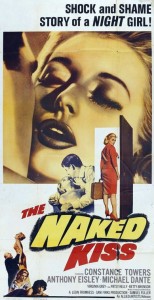
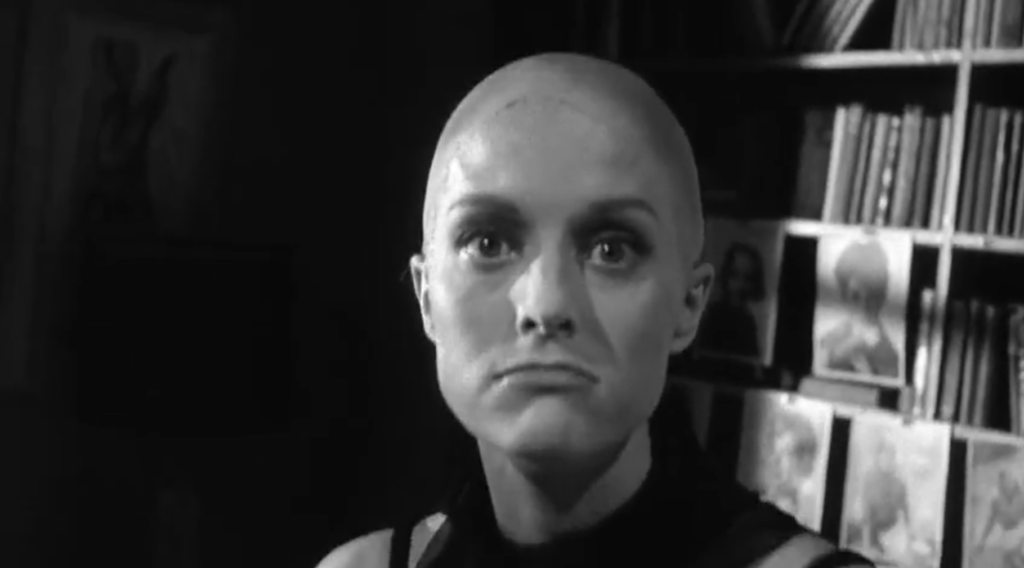

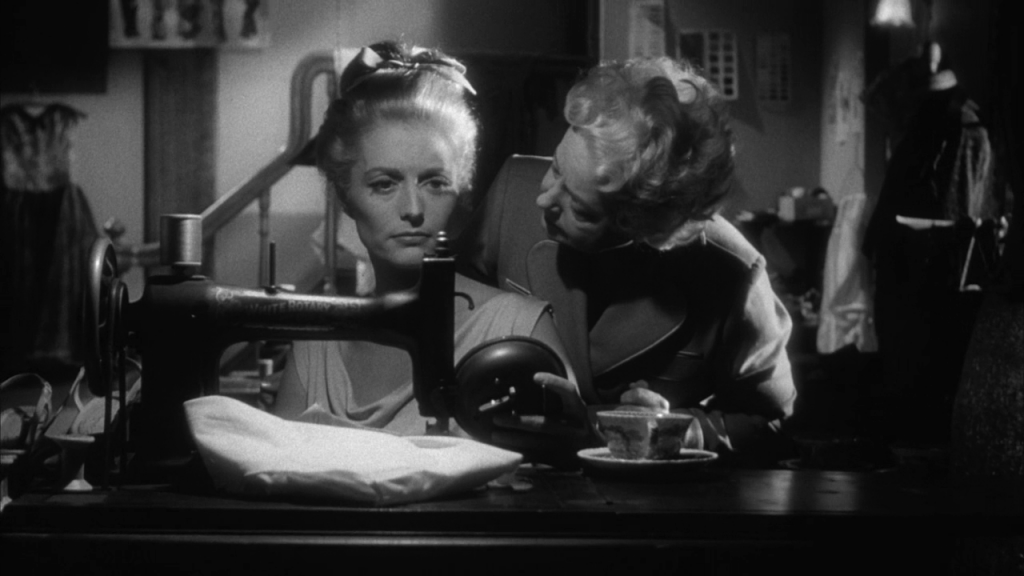
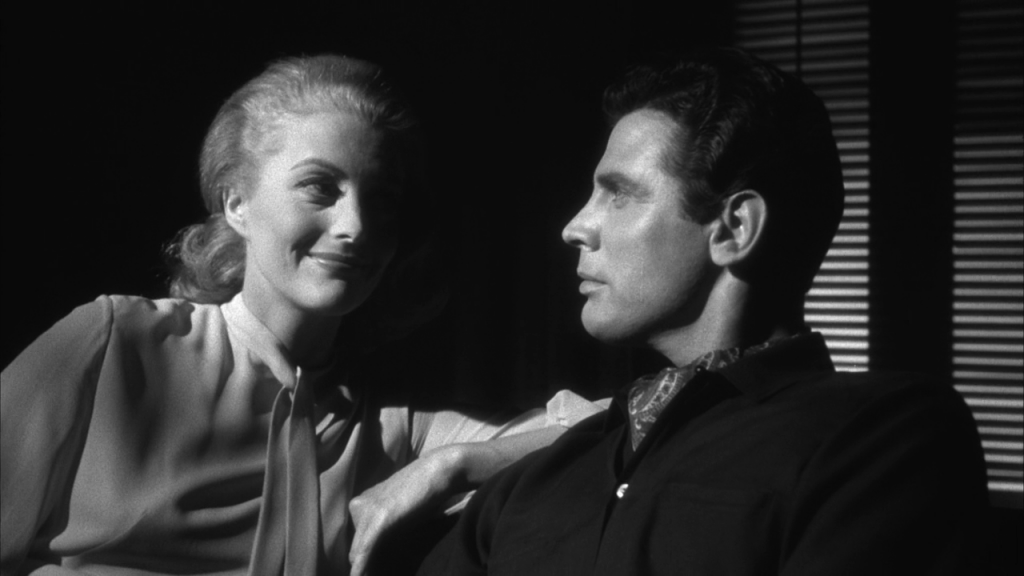
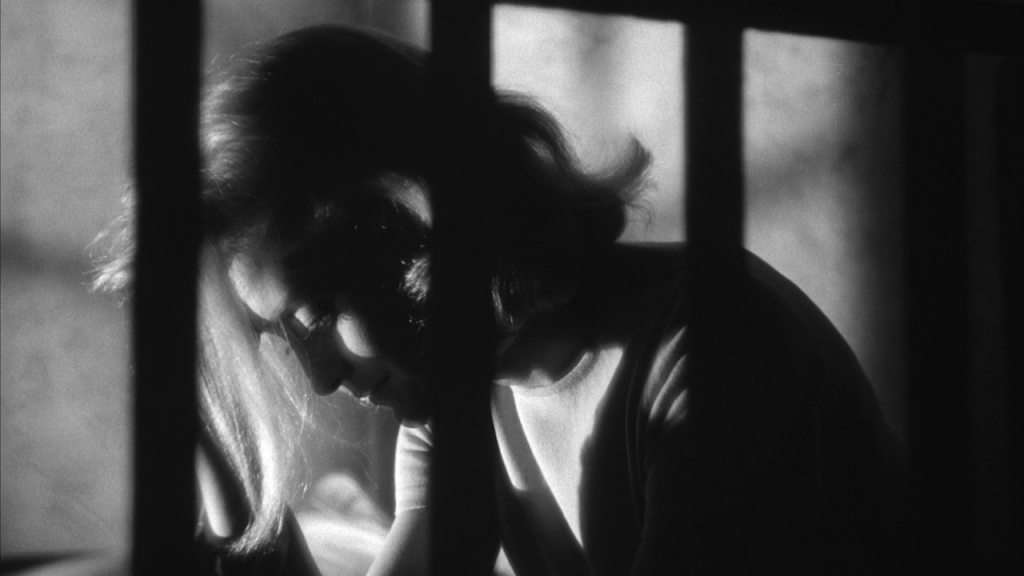
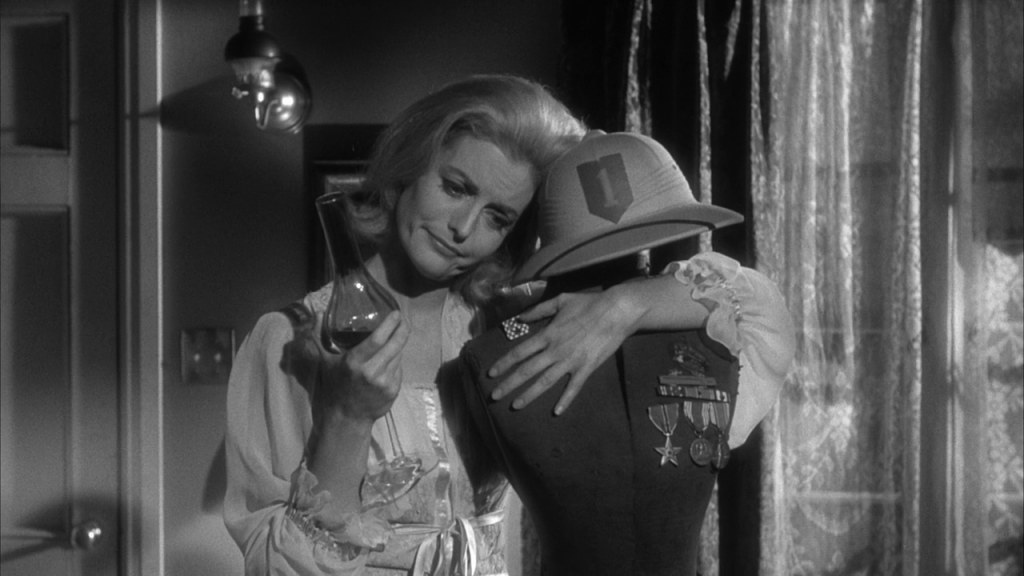
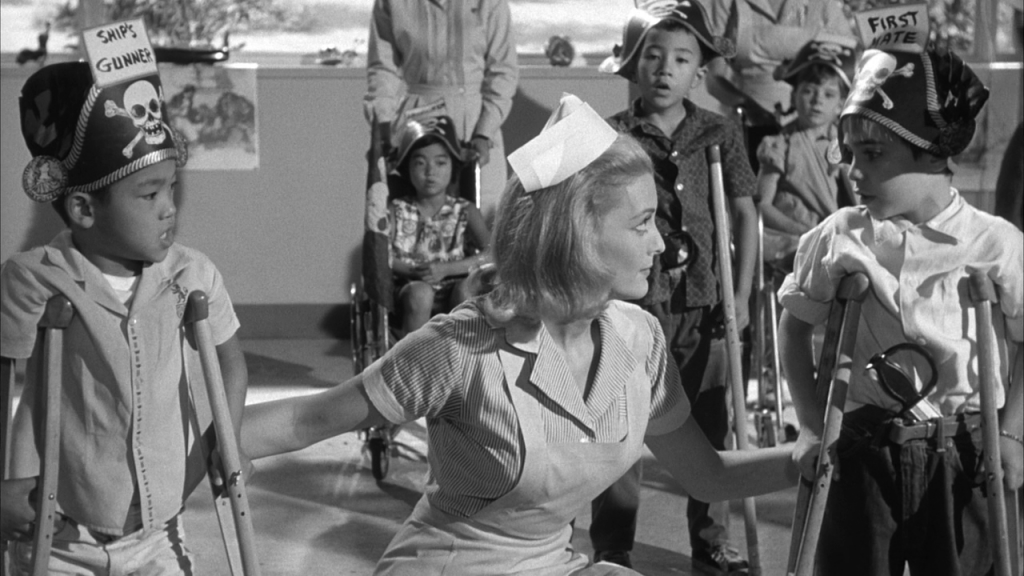
One thought on “Naked Kiss, The (1964)”
A once-must, but only because it’s too uniquely odd to ignore.
I don’t think ‘The Naked Kiss’ is a good film. Like Fuller’s ‘Shock Corridor’, ‘TNK’ is often slipshod, silly, far-fetched and peppered with purple/sometimes unintentionally funny dialogue.
However, unlike ‘SC’, ‘TNK’ is at least cohesive in its narrative and more consistent on its own terms. .
Being as over-the-top as the script is, the actors have a hard time putting it over. They do succeed most of the time, but it’s not particularly impressive acting overall.
The notorious opening scene is indeed effective and the film does have an intelligent and logical ace up its sleeve come the conclusion. As well, it’s easy to detect some of Fuller’s good intentions in terms of his social commentary. But I can’t ultimately call ‘TNK’ a particularly satisfying watch.